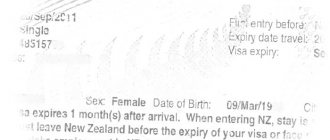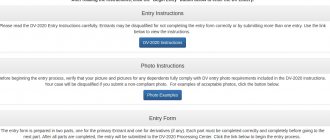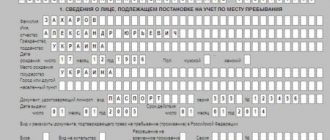Obtaining a work visa
To work in New Zealand you must have a work visa, residency or citizenship. To obtain one of these statuses, you need to find a job in New Zealand. Unfortunately, doing this remotely is extremely difficult. For this reason, most people come to study in the country and are already on the spot looking for work and further legalization. At the same time, in some cases, students have the right to part-time work, which helps not only the budget, but also the search for permanent work in the future.
From 8 August 2021, new rules for obtaining work visas after completing your New Zealand studies came into force.
Post Study Work Visa for 3 years
- If you complete a Bachelor Degree Level 7 program, or a level 8, 9 and 10 program, having studied for at least one year (30 weeks or more).
Post Study Work Visa for 2 years
- If you complete the Graduate Diploma Level 7 program outside of Auckland with a minimum of one year of study (30 weeks or more). Only applicable for program completion before December 31, 2021.
- If you complete a Level 4-6 program or programs outside of Auckland with a minimum of two years of study (60 weeks or more). Only applicable for program completion before December 31, 2021.
- If you complete the Graduate Diploma Level 7 program in Auckland with a minimum of one year of study (30 weeks or more), you will be eligible for a 1 year open work visa. Plus an additional 1 year if working towards a local professional registration (IPENZ, Engineering New Zealand, CPA, etc.).
Post Study Work Visa for 1 year
- If you complete any Level 7 program in Auckland with a minimum of one year of study (30 weeks or more).
- If you complete a Level 4-6 program or programs in Auckland with a minimum of two years of study (60 weeks or more).
What is needed to obtain residency
To be eligible to apply for residency, you must earn at least $25 local dollars (approximately $16 US) per hour (with a minimum wage of $18.90 (approximately $12 US)) and have at least two years of work experience.
There is a list of in-demand and well-paid professions, and we have already seen that my young man can get a job as a truck driver. And since I am his partner (we are not married, but this is not necessary - it is enough to prove the partnership, for example, with photographs), then I am automatically entitled to an open work visa.
Another option is to go to school. I already have a higher education, so I can study here for only a year and start building a career. When entering, the most difficult thing to pass is the English exam, otherwise everything is quite simple.
Where to look for jobs in New Zealand
The most common way is to search for vacancies on New Zealand websites:
- trademe.co.nz and seek.co.nz are the most popular in New Zealand.
- workhere.co.nz and workingin-newzealand.com are sites for international job seekers. Employers posting jobs on these sites are usually very familiar with the foreign hiring process.
- nz.gradconnection.com is a great resource for finding a job if you have just graduated and don't have much work experience.
- gradnewzealand.nz is a convenient resource for finding internships or jobs for students and graduates.
- sjs.co.nz – here you will find job advertisements for students.
- Facebook group - here you will find advertisements of mainly Russian-speaking employers.
- nz.jooble.org is a universal job search engine.
- Jobsora - Search jobs across New Zealand.
You can also contact a recruiting company. There are a large number of them in New Zealand and the services are free for applicants.
You will find a detailed list of these agencies on the Careers New Zealand website. You can work with more than one company. However, it is worth keeping in mind that it may seem unprofessional to the employer if you are presented with several agents for the same vacancy. The job market in New Zealand is small and it is important to remember who you approached about a job, when and what exactly you said.
Back to contents
Completing an internship
Successful students and university graduates have a chance to visit and even take root in this country. Since internships in New Zealand are very popular and quite realistic. This is an excellent opportunity to gain work experience, earn money and, in addition, strengthen your English language skills. Traditionally, an internship lasts about six months. Moreover, a visitor has the opportunity not only to work: 5 months are allocated directly for activity, and a foreigner has the right to spend another one visiting different parts of the state.
It is important to know that there is a certain list of professions whose representatives will be able to practice in New Zealand. At the same time, an internship is possible for those who are between 18 and 29 years old. You will have to get recommendations from your educational institution. Of course, you can’t do without knowing English. The applicant will also be checked to ensure he has no criminal record.
How to get a job
The most difficult thing in finding a job is getting started, that is, finding your first job. Without local experience and without knowing the peculiarities of New Zealand companies, you may miss out on good vacancies. Therefore, we advise you to take on any job while you are studying and at the same time look for your dream job . This applies to representatives of all professions. Don't limit your search to your narrow specialty. Think about which of your skills and knowledge are universal and can be useful in different areas and feel free to enter them into the search on job sites.
Don't be afraid of low-skilled jobs in New Zealand. The employer will not write you off because you are an engineer, worked part-time in a restaurant or on a construction site, but quite the opposite - they will see your initiative and hard work in this. Such qualities are valued in any field. And in parallel with such work, you can continue to look for something more desirable and closer to your specialty.
A volunteer position will be an even bigger plus for your resume.
. New Zealanders greatly value helping the community, whether it's helping to clean up an area, walking shelter dogs, or working unpaid at a clothing collection center for the poor. In addition to one more line on your resume, you will make new contacts and earn invaluable experience, as well as much-needed recommendations.
Working part-time while studying is useful not only in terms of finances and the subsequent search for a permanent job, but also in terms of psychology and adaptation. You will feel much more comfortable if you know that you are earning at least something, applying yourself and remaining a productive member of society.
Seminars will prepare you more thoroughly for job search in New Zealand
- New Kiwis in Auckland (with work or resident visas)
The workshops are aimed at immigrants and New Zealanders returning to the country after a long absence. The seminars last 3 days and participation in them is absolutely free. You only need to register on the site. The trainings are conducted by highly qualified specialists who will teach you all the intricacies of employment in New Zealand:
- How to develop an effective job search strategy?
- How to write a professional resume?
- How to answer questions correctly during an interview?
We would like to note that this is not just lectures and theoretical knowledge. They will work with you individually, answer all your questions, and you will undergo a test interview, where they will point out mistakes and work on the correct model of behavior. At the end of the workshop, you will have the opportunity to meet with your supervisor every few weeks to review how your job search is going.
Get acquainted with the features of work and further immigration by specialty on our website:
- Lawyers
- For designers
- Managers
- Accountants
- IT specialists
- For engineers
- For teachers
- Doctors
You have a higher education and (preferably) work experience in the desired country area
The only question is to find an employer willing to hire you. It's best to come here as a tourist or to take an English course (it never hurts).
In terms of schools, I recommend: Languages International (quality), NZLC (price-quality), Queens Academic Group.
A small digression: I provide links to Studyaway.ru, I will briefly tell you what it is and why, so that there are no illusions.
Once upon a time, I got tired of answering questions about studying in New Zealand. This is how the website studyaway.ru appeared, where I gathered Russian-speaking representatives of various New Zealand educational institutions.
The prices that the guys give on studyaway.ru are exactly the same as what you will get in schools or find on official websites. Most representatives have their own agreements with educational organizations; they will not ask you to pay extra for their time and services. Thus, studyaway.ru is a chance to get free help in organizing education in New Zealand.
Returning to the topic of the post. Experience with education is desirable, but not required, because it all comes down to your ability to “sell” yourself to an employer and your resume. It's easier with experience, of course.
The immigration service may consider that your intentions as a tourist or student are not sincere, and issue a limited visa. Its meaning is that before receiving a work or any other visa, you will need to leave the country. This is OK, there were cases when guys found work, received an invitation from the employer, left, and applied for a work visa from outside. For example, from Fiji, for whom it is more convenient.
What does a New Zealand employer pay attention to?
Based on years of experience, Kiwi Education staff agree that New Zealand employers look at applicant data in the following order:
- Visa This is the first screening point. Most employers do not want to deal with visa issues for employees, so they are looking for people who already have the right to work.
- Local experience and references This is a very important point. New Zealand employers want to be convinced that the person will be able to work in the local environment, that he has already completed the adaptation stage at the proper level and is ready to work. Therefore, we strongly recommend that students look for part-time work or even volunteer work during their studies. This helps a lot not only financially and psychologically, but also increases the chances of finding a permanent position in the future.
- Professional skills When opening positions in a company, employers want to see a person with certain clear skills. It is the presence of these skills and their correct display in your resume that will help tip the scales in your favor.
- Foreign work experience Of course, the knowledge and experience gained in your own country will always stay with you and can play a positive role in finding a new job. Not all knowledge will be relevant and useful, but nevertheless. If you have experience working for international companies or participating in international projects, so much the better for you.
- Personal appeal In New Zealand, communication and personality play a big role. The manager prefers to hire employees with whom, in his opinion, he will be comfortable working. Thus, it is very important to be able to win over. Most likely, you will work in a team and this point will definitely be taken into account.
- Prestige of education And only if the initial data is equal to your competitors, in the sixth place the employer can look at the prestige of your education. And, perhaps, will give preference to the one whose diploma is more valued in New Zealand and in the world. At the same time, in academic, scientific, medical, engineering and some other industries, the prestige of education will play a much more important role.
Salaries in New Zealand
From 1 April 2021, the minimum wage is NZ$20 per hour.
- Graduates of a three-year Level 7 Bachelor's degree earn approximately NZ$38,000 in the first year of work, rising to NZ$50,000 in the third year.
- Graduates of one-year programs at Level 7 and above earn approximately NZ$45,000 in the first year, rising to NZ$58,000 in the third year.
Source for official data
Salary comparisons by degree type and profession
Of course, salaries can vary greatly depending on the specialty, the level of existing skills, as well as the ability to present oneself correctly.
- A convenient tool for comparing conditions for graduates with salary indicators.
- Comparison of income, training costs and employment prospects by major.
- A general site for searching information about salaries and prospects by specialty and area.
Employment statistics
Now let's look at the likelihood of finding a job with the right salary.
General unemployment data Officially, New Zealand has a fairly low unemployment rate - less than 6%, this figure is among the top ten in the world. At the same time, more than 21% of unemployed people aged 15 to 19 years and more than 10% of people aged 20 to 24 have a great influence on the statistics. In addition, the highest numbers of unemployed people are found among Maori and Pacific citizens, while unemployment among Europeans is less than 4.5% and among Asian citizens it is below 7%.
More detailed statistics can be found on the official website.
Key data on international graduates In the first year after completing a three-year Level 7 Bachelor's degree, about 22% of graduates continue their studies, about 29% are employed, and about 45% return home or go to other countries. In the first year after completing one-year programs at Level 7 or above, about 20% of graduates continue their studies, about 60% of graduates find employment, and about 20% leave New Zealand.
Source for official data.
Key data on local graduates In the first year after completing a three-year Level 7 bachelor's degree, about 37% of graduates continue their studies, and about 57% are employed. In the first year after completing one-year programs at level 7 or above, around 13% of graduates continue their studies, and around 82% of graduates find employment.
Source for official data
Data based on Kiwi Education survey
According to the 2021 Kiwi Education survey, around 90% of our students remain in New Zealand.
Of these, 107 people are undergoing training 23.6%, 138 people are employed 31%, 52 people are looking for work 11.6%, 72 people have residence 16%, 29 people have received residence through a partnership 6.5% and only 21 people have returned home 4.7%, 13 people left for another country 2.9% (4% of respondents).
The survey was conducted openly in Russian-speaking groups in New Zealand, in Kiwi Education groups, and also through our mailing list to our customer base. Of course, it cannot be said that these statistics accurately reflect the state of affairs, since some students who left may not have seen this survey.
Kiwi Support job search in New Zealand
Finding a job in New Zealand is not an easy task and it is worth approaching this process comprehensively, having studied the features of your industry in the country, accepted rules and application templates, ways of searching for vacancies and behavior with a potential employer. Our task is to select the best options for you.
Kiwi Support is ready to provide you with comprehensive assistance in your job search: resume, interview preparation, supporting materials, as well as useful information:
- What is the process of hiring employees for the company?
- where and how to look for work;
- what are the most common problems that newly arrived specialists face in the country, and how they can be overcome or at least minimized;
- what are the most frequently asked interview questions in New Zealand and how to answer them correctly.
Read more about the service on the Kiwi Support website.
Work for migrants: search for vacancies
If you decide to go to New Zealand to earn money, you should pay attention to how you find a suitable job. There are two most common methods:
- through an intermediary;
- on one's own.
The list of vacancies is quite large. An independent search can be carried out using special resources that post various vacancies. The advantages of this method are as follows:
- costs are reduced since there are no intermediaries;
- It is possible to filter all vacancies based on certain criteria.
An application is submitted through the website, after which you can communicate with a potential employer directly.
The second most common way to find a job is to contact a recruitment agency. Most provide their services to applicants free of charge, but experts do not recommend registering with several agencies at once. This is due to the fact that the country’s labor market is relatively small, so employers do not like it when they are sent several resumes of applicants at once.
There are also several points that should be taken into account when applying for a job. They are as follows:
- There is no need to indicate the position that was previously occupied.
- Many employers prefer to meet with applicants in person. Therefore, it makes sense to take the initiative by calling or sending your resume by mail.
- There is no need to include personal information on your resume. Documents can be submitted in various forms.
The ranking of professions changes almost every year. The most in demand and paid jobs are doctors and programmers. A Russian education document is not considered by all employers.










